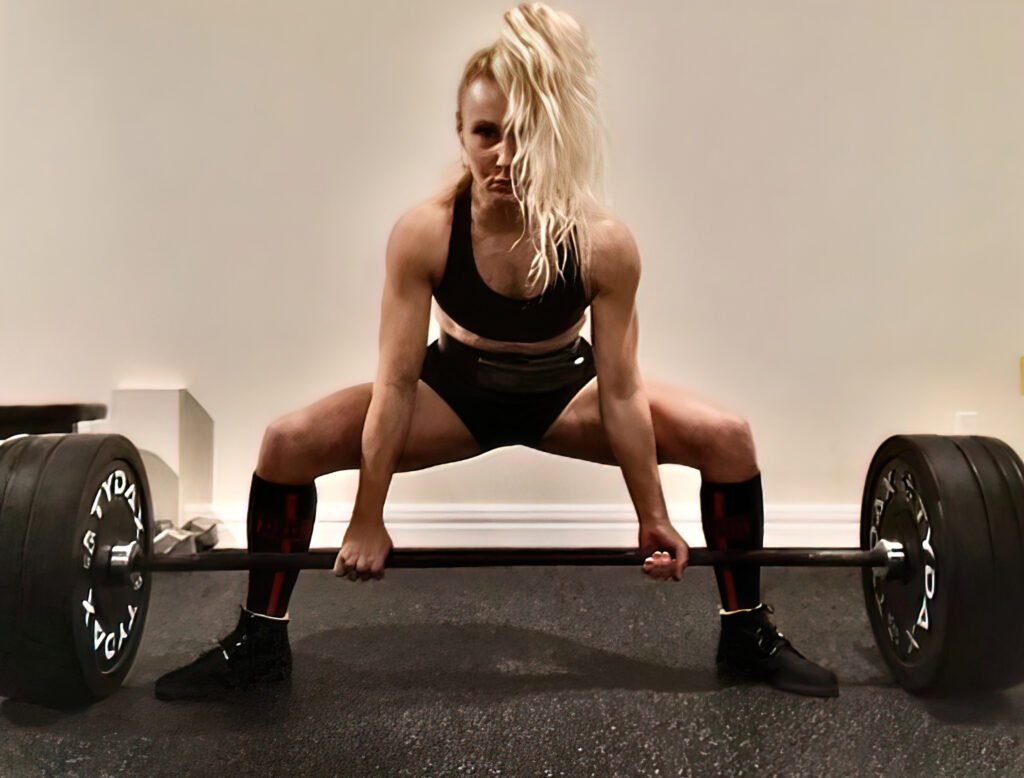Do I Need to Periodize?
The main value of periodization for all trainees comes from the fact that you cannot optimally impro...
| August 6, 2021
By Guest Post
Warning: Undefined variable $post in /home/u355111447/domains/wellnessadept.com/public_html/wp-content/plugins/oxygen/component-framework/components/classes/code-block.class.php(115) : eval()'d code on line 3
Warning: Attempt to read property "ID" on null in /home/u355111447/domains/wellnessadept.com/public_html/wp-content/plugins/oxygen/component-framework/components/classes/code-block.class.php(115) : eval()'d code on line 3
Read time: 4 min.

By: Michelle Vandegriend
I have an athletic background in rock climbing, yoga, and Crossfit, and when I launched into the world of powerlifting a couple years ago, there was no turning back. I quickly recognized that not only does powerlifting build on your physical strength but on your mental fortitude as well.
The following six points are reflective of my own learning experiences, and hopefully may help you too.
Over the past couple of years, my passion and focus has become powerlifting while my husband has focused on Crossfit. We are each other’s greatest support. Together we validate the effortful dedication required to train and compete, and we keep each other on track when needed.
In the world of powerlifting I’ve come to surround myself with further positive and supportive people where there is a mutual reciprocity of encouragement and a collegial environment. Seeking out and encouraging supportive opportunities will help you continue to grow as a lifelong athlete.
No matter how advanced, skilled, or experienced we think we are it can be humbling to recognize a weak point. As part of my training to become a psychologist I participated in what was called a “reflection team” where a handful of colleagues would observe you, during a live session with a client, behind a one-way mirror. As anxiety ridden as it may seem, they were the best learning experiences I ever had. I learned to ask for, receive, and provide feedback in a positive and effective way. Powerlifting encompasses regular critique in the skill of each lift. Develop the mindset of a lifelong student - know your areas of strength, but also recognize where and when you may need feedback and the expertise of a coach.
Clients will often tell me they want to integrate fitness or change their eating habits. I also hear, however, “It’s hard to find the time” or “I just can’t get motivated.” True enough – life gets busy, and we do encounter internal factors (i.e. anxiety, avoidance, perfectionism, procrastination) and external factors (i.e. work schedules, commitments, family obligations) that may derail us at various times in life. I encourage individuals to start by choosing something really small and to track their progress. Daily behavioral choices by themselves may seem inconsequential or slow going, but over a period of time they add up to a lot, and over a period of a few weeks can formulate into a positive, intentional habit. The building of purposeful habits are “the cab ride to the gym” (J. Clear) until it eventually evolves into a lifestyle.
I describe this aspect as the culmination of short-term and long-term goals in conjunction with a vision, mission or legacy, that is in alignment with what you value the most in life. Write it down and keep it in an area where you see it daily. For me, “walking my talk” and being a role model for my two teenage sons trumps all else. On a regular basis I remind myself of my “why”, and I approach the barbell with a ton of respect. For some uninitiated to the sport, it may just look like a lump of iron, but in the hands of a powerlifter it means everything.
My powerlifting training sessions are dedicated, valuable time that I’ve made a priority in my life and some days they can be grueling and tough to get through. I know however, that it is a process – and because of this, I also know that I can laugh at myself when I miss a lift or a cue, it’s not the end of the world. The completion of something difficult, learning a new skill, trying a different strategy, and sharing reflections or new ideas with others IS what makes it fun.
In 1954, L. Festinger developed “the social comparison theory” which suggests that, as human beings, we have an innate tendency to evaluate ourselves in comparison to others in order to define who we are and to decrease ambiguity in our lives. Later research also suggests that we can make “upward” comparisons where we compare ourselves to those we feel are more skilled than us or the opposite, “downward” comparisons to make ourselves feel better – both come with issues. Everyone is at a different place in their training and in life. You are the driver of your own bus and staying in your own lane may just help you appreciate your progress and accomplishments a little more.
Guest Post
I’ve been a registered psychologist in Alberta for approximately 15 years, and I am grateful to be able to support people’s mental health. When I’m not in the office, I make powerlifting training and fitness a priority. My life is always filled with adventure as a student pilot, rock climber, an amazing husband of 22 years, and two incredible boys ages 12 and 16 years.
New articles, content with tips, inspiration, and coaching directly to your inbox.